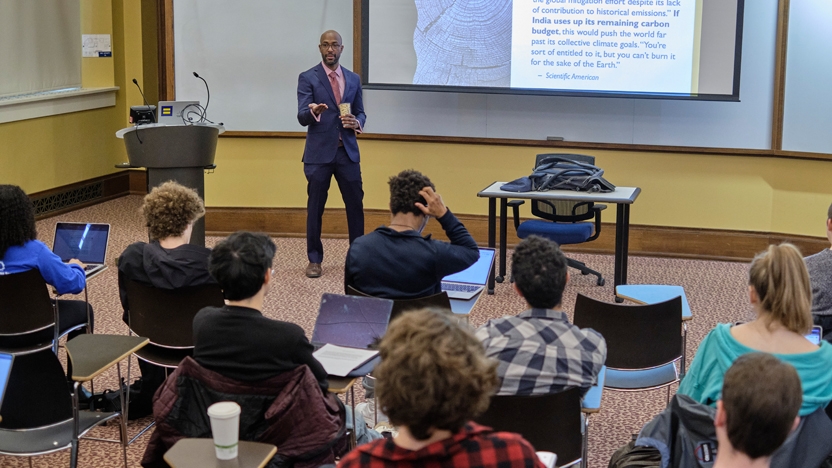For Faculty

Middlebury faculty have been at the lead of climate, environment, and sustainability curricular development for decades, including the launch of the first-ever Environmental Studies program in the country in 1965. Each year, Middlebury faculty teach hundreds of classes covering the environment, climate change, and sustainability.
Integrate Energy2028 Into Classes
- Participate in the annual Climate Teach In when we work to make climate change a part of all classes. This year, the Teach-In is April 7-13, 2025. Sign up and log your participation here!
- Become an ES affiliate: faculty can join the Environmental Studies program as affiliates, showcasing the interdisciplinary nature of climate and environmental work, and connecting with the robust community.
- Teach a class! Finding time and space to teach the climate classes you want can be challenging! Work in community and find some inspiration here.
- Point your students to these resources/opportunities
- In Action:
- Physics professor Ben Cotts taught a First Year Seminar on Future Energy Systems in Spring 2024, helping brand-new students develop a baseline understanding of Energy2028 and action on campus and beyond
- Arabic professor Usama Soltan said he usually doesn’t cover climate change in his classes, but “since we started this teach-in initiative, I’ve been using short video clips to highlight how the issue is addressed in Arabic-speaking communities.“
- Julia Berazneva’s Climate Change Economics (ECON 365) surveyed the entire school about climate and Energy2028
Research
- Faculty often do research that directly connects to the E2028 commitments, and more broadly, to climate and sustainability.
- Funding is available through Strategic Initiatives
- Integrate Energy2028 and climate elements into existing research- the environment connects to everything we do!
Get Involved On and Off Campus
- Participate in Environmental Council (counts toward service!)
- Join the Energy2028 Steering Committee
- Sign up for the SEA newsletter
- Model climate action: take action individually with consumer, political, and civic engagement.
- Weatherize and Update Your Home and Utilize Efficiency Vermont Incentives and the CEAC Energy Navigator program
Host an Event or Speaker
- Host events/speakers: build student understandings of climate challenges, approaches, and solutions by hosting leaders in their fields.
- Funding support available through Climate Action Program
- Make alumni connections: Middlebury alums are doing incredible climate work. Host them as speakers and mentors. Reach out via your department, LinkedIn and Midd2Midd, and through SEA, CCI, ADV.
- The Middlebury Alums Global Speaker Series is a great example of this!

